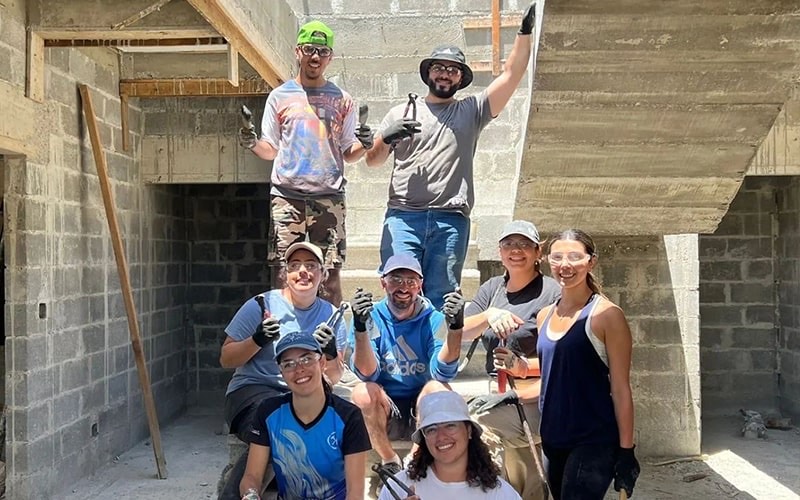
Interested in museum education jobs? Dive straight into the vibrant world of opportunities where your passion for art and education converge. Picture yourself shaping young minds and sparking curiosity in a dynamic museum setting. Explore the diverse roles awaiting enthusiastic educators like you. Let’s embark on this enlightening journey together. Join the realm where creativity, learning, and history blend seamlessly. Are you ready to embrace the exciting realm of museum education jobs?
Museum Education Jobs: A Comprehensive Guide
Imagine a career that combines your passion for art, history, and education – that’s what museum education jobs offer. Working in a museum setting provides a unique opportunity to engage with diverse audiences, from school children to adult learners, and make a meaningful impact through educational programming. In this detailed guide, we will explore the world of museum education jobs, including roles, responsibilities, required qualifications, and tips on how to land your dream job.
Roles and Responsibilities in Museum Education Jobs
In the realm of museum education, there are various roles that professionals can pursue. Here are some common positions within this field:
1. Education Coordinator
As an Education Coordinator, you will be responsible for developing, implementing, and evaluating educational programs for visitors of all ages. This role involves collaborating with curators, educators, and other museum staff to create engaging experiences that enhance the visitor’s understanding of the museum’s collections.
2. Museum Educator
Museum Educators work directly with visitors, leading tours, workshops, and interactive activities. They are often the face of the museum, providing insights into the exhibits and facilitating learning experiences for diverse audiences.
3. Outreach Specialist
Outreach Specialists focus on bringing the museum experience to schools, community centers, and other off-site locations. They develop partnerships with external organizations to expand the reach of educational programs and ensure accessibility for all.
4. Curriculum Developer
Curriculum Developers design educational materials, lesson plans, and resources that align with school curricula and educational standards. They play a crucial role in making museum collections relevant and engaging for teachers and students.
Qualifications and Skills Required
To excel in museum education jobs, certain qualifications and skills are essential. While specific requirements may vary depending on the museum and the position, here are some common qualifications sought after by employers:
1. Educational Background
– A degree in education, museum studies, art history, or a related field is typically required.
– Some positions may prefer candidates with a master’s degree or specialized certification in museum education.
2. Experience
– Prior experience working in education, museums, or cultural institutions is advantageous.
– Experience in developing and delivering educational programs for diverse audiences is highly valued.
3. Communication Skills
– Strong verbal and written communication skills are crucial for effectively engaging with visitors and collaborating with colleagues.
– The ability to adapt communication styles for different age groups and learning preferences is essential.
4. Creativity and Innovation
– Creativity in designing engaging educational experiences and innovative approaches to interpreting museum collections are key skills in this field.
– Being able to think outside the box and create dynamic learning opportunities sets exceptional museum educators apart.
How to Land Your Dream Museum Education Job
Securing a museum education job requires a combination of education, experience, and passion for both learning and cultural heritage. Here are some tips to help you stand out as a candidate:
1. Gain Relevant Experience
– Volunteer or intern at museums, educational institutions, or community organizations to build practical experience.
– Take on leadership roles in educational initiatives to demonstrate your commitment to the field.
2. Develop Your Skills
– Stay updated on trends in museum education by attending conferences, workshops, and training programs.
– Enhance your digital literacy skills to adapt to the increasing use of technology in educational programming.
3. Build a Professional Network
– Attend networking events, join professional associations, and connect with current museum educators to expand your contacts.
– Seek mentorship from experienced professionals in the field to gain valuable insights and guidance.
4. Tailor Your Application
– Customize your resume and cover letter to highlight relevant experience, skills, and achievements in museum education.
– Research the museum and align your application with its mission, values, and educational initiatives.
In conclusion, museum education jobs offer a dynamic and rewarding career path for individuals passionate about art, history, and education. By exploring the diverse roles, qualifications, and tips provided in this comprehensive guide, you can embark on a fulfilling journey towards a successful career in museum education. Whether you aspire to be an Education Coordinator, Museum Educator, Outreach Specialist, or Curriculum Developer, the key lies in combining your expertise with a genuine dedication to inspiring learning and discovery in museum settings.
Frequently Asked Questions
What qualifications are typically required for museum education jobs?
A typical requirement for museum education jobs is a bachelor’s degree in a relevant field such as education, art history, museum studies, or a related discipline. Some positions may require a master’s degree as well. Additionally, experience working in education or museums, as well as strong communication and organizational skills, are often essential.
What are the primary responsibilities of a museum education specialist?
A museum education specialist is responsible for developing and implementing educational programs and resources for visitors of all ages. They may create guided tours, workshops, lectures, and other interactive activities to engage the public with the museum’s collections. They also often collaborate with schools and community organizations to promote learning outside the museum walls.
How important is creativity in museum education jobs?
Creativity is a crucial aspect of museum education jobs. Museum education specialists are tasked with designing innovative and engaging programs that appeal to diverse audiences. They need to think outside the box to make learning experiences memorable and impactful for visitors. Creativity allows them to bring the museum’s collections to life in unique and exciting ways.
What are some key skills that are beneficial for a career in museum education?
Some key skills that are beneficial for a career in museum education include excellent communication skills to engage with visitors of all ages, strong interpersonal skills to collaborate with colleagues and community partners, creativity to develop engaging programs, adaptability to work in a dynamic environment, and a passion for both education and the arts.
How can someone gain experience in museum education before applying for a job?
One way to gain experience in museum education is to volunteer or intern at a museum. This hands-on experience allows individuals to work directly with educators, develop programs, and engage with visitors. Another option is to participate in workshops, seminars, or online courses related to museum education to enhance skills and knowledge in the field. Networking with professionals in the industry can also provide valuable insights and opportunities.
Final Thoughts
In conclusion, pursuing a career in museum education jobs offers rewarding opportunities to engage with diverse audiences and promote cultural awareness. Professionals in museum education jobs play a crucial role in developing interactive learning experiences and fostering a deeper appreciation for art and history. If you are passionate about education and have a love for museums, exploring museum education jobs can lead to a fulfilling and impactful career path.





